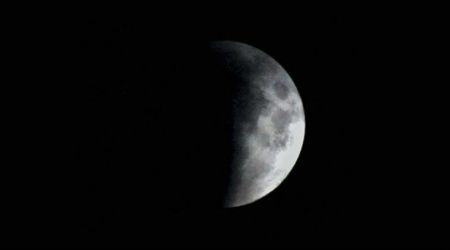 Scientists are explorers. Like all explorers, we don’t know what might be around the next turn. (Representational image)
Scientists are explorers. Like all explorers, we don’t know what might be around the next turn. (Representational image)
The Argentinian writer Jorge Luis Borges was obsessed with libraries and labyrinths. His short stories examined the meaning of knowledge and the means by which it was gained. Though he never spoke of it directly, Borges’s stories always made me feel that he would have understood the tragedies, triumphs and day-to-day fun of doing science.
On August 9, in a ‘March for Science’, several thousand scientists and non-scientists took to the streets in cities across India. In many ways this event was a celebration of science, which continues to enjoy broad public support. In the present renaissance of science journalism and science communication, there is plenty of excellent material explaining scientific discoveries and their technological applications in accessible terms.
But there is very little written about the process of doing science, or of the motivations that drive scientists. This has led to a distorted image of science among the public and among policy-makers, at odds with scientists’ conception of their own work. Before we start any conversations about the long-term role of science in society, we must clear up these misconceptions.
Scientists are explorers. Like all explorers, we don’t know what might be around the next turn. But rather than setting out across oceans, savannahs, or mountain ranges, I like to imagine that we are set loose in one of Borges’s vast labyrinthine libraries.
Picture it. The Library of Nature has millions of rooms, connected to one another by passageways. On the shelves of each room are hundreds books written in myriad languages. If we could read them, we would find most these books to be prosaic, commonplace. But some of them contain Great Truths that tell us about our place in the universe, and give us the power to manipulate our world. It is these Great Truths we are in search of.
We explore the library, moving from room to room via the passageways. From every room there are many ways out. Some of the passageways have grand, decorated entrances. Others are no more than holes, with barely enough room to stand up. It’s tempting to follow the grand entrances, but this often leads us to dead ends. We document these dead ends, so our fellow explorers don’t make the same mistakes we did.
Some books in some rooms contain hints about which passageways to take, but decoding these hints is a painstaking process. Occasionally we decipher a new language. This is a great achievement, as it gives us access to a whole new set of books. We attempt efficiency by splitting up the library into sections and deploying teams to each section. But the labyrinth is so inter-twined that we must share notes, and learn from one another. Sometimes, while in one room, we notice cracks in the wall through which we glimpse other rooms not yet visited. Each such discovery is celebrated, and drives us to keep going.
There are two common misconceptions about these scientist-explorers. The first misconception is that we have access to a map of the library, and the task is simply to find the right route to the rooms containing Great Truths. This map-centric view is evident when scientists are asked to develop a cure for neurodegeneration, or an ultra-strong material for jet engines. But there is no such map of the whole library, only fragments showing rooms we have already explored. Loud showmen pretending to have such a map sometimes lead many explorers along a single trail, only to be doomed at a dead end.
The second misconception is that we simply have to sit and read every book, so the Great Truths will eventually be revealed. This is the fetish of the Big Data brigade, who believe that enough small facts will eventually accumulate to generate profound insights. But the time it would take to read every book would exceed the lifetime of the universe. Explorers forced to live their lives reading one book after the next, unable to leap away and enter a different room, would find no fulfilment and eventually quit in frustration.
How, then, do we ever find Great Truths? It is true that we have no map and not enough time. But each of us does have a compass. The compass is delicate: it only works when conditions are ideal; it must be held just right; and we must have patience to record the reading of its fluctuating needle. Used correctly, the compass points toward the direction in which we must move. There might not always be a direct passage leading that way, but we are often able to puzzle out a route.
This leads each of us to important discoveries: new languages and new sections of the library. Over time, our collective efforts allow a few scientist-explorers to find books containing Great Truths. When they do, they give credit to all the explorers that paved the way for them, and we share in their elation. This has the dual effect of inspiring a new generation of scientist-explorers, and providing tangible benefits to society.
So what is this compass? It is the sense that each scientist develops over time, of what questions to ask, what problems contain the key to unlocking big secrets. It is an aesthetic taste in approaches and methods, an intuition of how best to tackle such problems. It is the power to recognize when problems are close to being solved, of which obstacles still remain. The use of the compass takes time to master, it cannot be defined by a formula. The skill is passed down from teachers to students over centuries.
Both scientists as well as the broader society in which we live are aligned in the goal of finding Great Truths. But it takes time to understand the Library of Nature and its inner workings. It is not a collection of books strewn about haphazardly, but neither does it contain patterns so obvious as to be evident at first glance.
When society makes demands of scientists, we are obliged to listen because society provides the resources that support our exploration. But we should be careful to explain that there is no map, that following compasses takes time, that dead ends are common. We should explain why small discoveries should be celebrated, why we must share ideas, why we need to build a community in which diverse viewpoints are possible. This is the approach by which we discovered the laws of gravity and evolution, and every other Great Truth on which our modern technological society depends.

